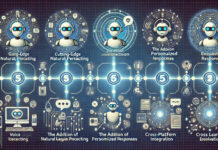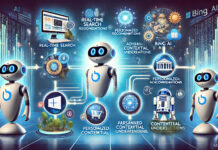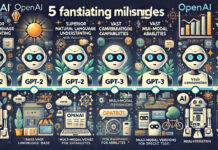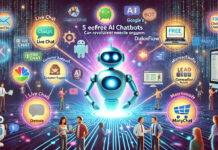Table of Contents
Artificial Intelligence (AI) is transforming the field of software testing, offering advanced tools and techniques that enhance efficiency, accuracy, and reliability. As software systems become more complex, traditional testing methods struggle to keep up with the demand for rapid and thorough testing. AI-driven software testing addresses these challenges by automating repetitive tasks, identifying defects with greater precision, and predicting potential issues before they arise. This article delves into the impact of AI on software testing, the benefits it brings, and what engineers need to know to leverage this technology effectively.
The Role of AI in Software Testing
AI plays a crucial role in modernizing software testing processes. By leveraging machine learning algorithms, natural language processing, and predictive analytics, AI-driven tools can significantly improve the testing lifecycle.
Test Case Generation
One of the primary applications of AI in software testing is the automated generation of test cases. Traditional methods require manual creation of test cases, which is time-consuming and prone to human error. AI algorithms analyze the software’s requirements and generate comprehensive test cases that cover a wide range of scenarios. This automation ensures that more tests are conducted in less time, increasing test coverage and reducing the likelihood of overlooked defects.
Test Execution
AI enhances test execution by automating the running of test cases. Continuous Integration/Continuous Deployment (CI/CD) pipelines benefit greatly from AI-driven test automation, as it allows for the rapid execution of tests each time the codebase is updated. AI can also prioritize test cases based on their relevance and likelihood of finding defects, ensuring that critical tests are run first.
Defect Prediction and Analysis
AI’s predictive analytics capabilities enable it to identify potential defects before they become apparent. By analyzing historical data and identifying patterns, AI can predict where defects are most likely to occur in the code. This proactive approach allows engineers to focus their efforts on high-risk areas, improving the overall quality of the software. Additionally, AI can assist in root cause analysis by correlating defects with specific parts of the code, making it easier to identify and fix the underlying issues.
Benefits of AI in Software Testing
The integration of AI into software testing offers numerous benefits, from increased efficiency to improved accuracy.
Increased Efficiency
AI-driven automation significantly reduces the time and effort required for software testing. Automated test case generation and execution free up engineers to focus on more complex tasks, such as designing new features and improving the user experience. This efficiency is particularly beneficial in Agile and DevOps environments, where rapid development cycles demand quick and reliable testing.
Improved Accuracy
AI algorithms can analyze vast amounts of data with high precision, identifying defects that might be missed by human testers. This accuracy ensures that software is thoroughly tested, reducing the risk of defects making it into production. AI-driven tools can also adapt to changes in the software, continuously improving their accuracy over time.
Cost Savings
Automating repetitive and time-consuming tasks with AI reduces the overall cost of software testing. By minimizing the need for manual intervention, organizations can allocate resources more effectively and reduce the time-to-market for new software releases. Additionally, early defect detection helps avoid costly fixes later in the development process.
Challenges of Implementing AI in Software Testing
While AI offers significant advantages, its implementation in software testing also presents challenges that need to be addressed.
Data Quality and Availability
AI algorithms rely on high-quality data to function effectively. Incomplete or biased data can lead to inaccurate predictions and unreliable test results. Ensuring the availability of comprehensive and representative datasets is crucial for the success of AI-driven testing.
Skill Requirements
Incorporating artificial intelligence into testing processes requires a certain level of expertise in both AI and testing methodologies. Organizations may need to invest in training their staff or hiring specialists to manage AI-driven testing tools effectively.
Integration with Existing Processes
Integrating AI tools with existing testing frameworks and CI/CD pipelines can be challenging. Organizations must ensure that AI-driven tools complement their current processes and do not introduce additional complexities.
Future Trends in AI-Driven Software Testing
The future of artificial intelligence in the realm of software testing appears extremely promising, with numerous emerging trends anticipated to significantly transform and shape the industry.
Enhanced Predictive Analytics
As AI algorithms become more sophisticated, their predictive capabilities will improve, allowing for even more accurate defect prediction and risk assessment. This will enable engineers to adopt a more proactive approach to quality assurance.
Autonomous Testing
The concept of fully autonomous testing, where AI-driven tools manage the entire testing lifecycle without human intervention, is gaining traction. While this level of automation is still in its early stages, advancements in AI could make autonomous testing a reality in the near future.
AI-Driven Test Maintenance
Maintaining test cases and scripts can be a significant burden, especially in dynamic environments. AI-driven tools can automatically update and optimize test cases as the software evolves, ensuring that tests remain relevant and effective.
Conclusion
AI is revolutionizing software testing by automating repetitive tasks, improving accuracy, and providing predictive insights. For engineers, understanding how to leverage AI-driven tools is essential to stay competitive in the rapidly evolving tech landscape. By addressing the challenges and embracing the benefits of AI, organizations can enhance their software testing processes, ensuring higher quality and faster delivery times. As AI technology continues to advance, its impact on software testing will only grow, shaping the future of quality assurance in software development.
For further insights into AI and its applications, stay tuned to our series on AI technologies, Opinions and Analyses.



